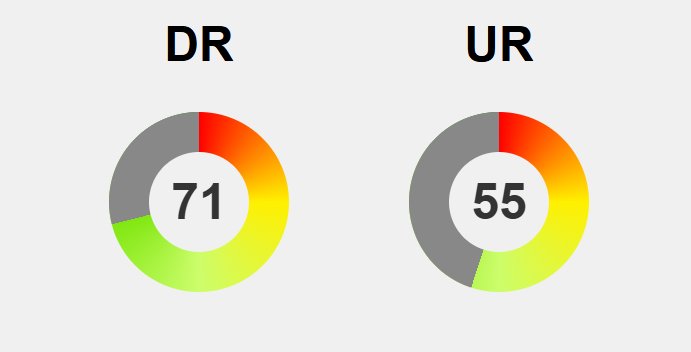Beneath the confident, charismatic facade of narcissists lies a fragile core shaped by early emotional wounds—are their outward bravado and constant need for admiration merely shields against unacknowledged vulnerabilities? Exploring the psychological roots of Narcissistic Personality Disorder reveals that their inflated self-image often masks deep-seated insecurity, shame, and self-doubt—created by childhood experiences like neglect or overpraise. Recognizing these hidden wounds transforms our understanding from judgment to empathy, showing that their defensiveness and arrogance are protective mechanisms, not true confidence. How can this insight reshape our interactions? By approaching narcissists with patience and compassion, setting strategic boundaries, and responding thoughtfully to their vulnerabilities, we create pathways for genuine connection and potential growth. This perspective not only fosters healthier dynamics but also invites us to reflect on our own emotional landscapes, reminding us that beneath every mask is a wounded individual seeking validation and understanding.
Unmasking the Hidden Weaknesses Behind Narcissistic Confidence
Many people see narcissistic personality disorder (NPD) simply as someone who is overly confident or self-absorbed, but there’s more beneath the surface. While they often project an image of success and charm, that outward confidence masks a much more fragile inner world. This disparity between appearance and reality is at the core of understanding narcissistic vulnerabilities.
Narcissists typically develop their sense of self through early experiences, which can leave lasting emotional scars. Some were excessively praised as children, creating a self-image that depends heavily on external validation. Others faced neglect or emotional inconsistency, leading them to believe they are unworthy or insecure deep down. These childhood dynamics set the stage for their adult need to seek constant admiration and approval.
Beneath their confident exterior, narcissists are highly sensitive to criticism or failure. Even minor setbacks can trigger intense reactions because their self-esteem isn’t stable; it relies on external validation. When challenged, they often respond defensively—denying, dismissing, or lashing out—because their fragile ego perceives any threat as a personal attack. Their defensiveness isn’t arrogance but a shield to protect their vulnerable core.
Their emotional wounds also influence how they handle rejection. Instead of accepting setbacks as part of life, they interpret them as evidence of personal inadequacy. To hide these feelings, they double down on arrogance or manipulate situations to regain admiration. This constant effort to maintain a perfect image acts as a barrier against shame and insecurity they fear exposing.
Research shows that many narcissists harbor feelings of shame and deep-seated self-doubt buried beneath their outward bravado. Because acknowledging these feelings feels threatening, they develop defensive strategies like boasting or exaggerating achievements—acts that serve as shields against vulnerability. Their behavior becomes less about vanity and more about warding off internal pain they refuse to confront.
Recognizing these psychological roots reveals that narcissistic behavior isn’t just about ego or vanity. It’s often a defensive response to unresolved emotional wounds from childhood. Seeing their actions through this lens shifts our perspective from judgment to empathy, understanding that beneath their bravado lies a wounded individual trying to shield themselves from pain. This insight fosters a more compassionate approach, helping us see their behavior as coping mechanisms rather than simple selfishness.
Exploring the Deep Psychological Roots of Narcissistic Insecurity
Many narcissists carry deep psychological wounds that shape their fragile self-esteem. These wounds often originate in childhood, where experiences such as neglect, excessive praise, or inconsistent validation leave lasting scars. For some, early praise inflates their self-view, making their sense of worth heavily dependent on external approval. For others, feelings of neglect or being misunderstood create a core belief of inadequacy, fueling their adult need for constant affirmation.
Beneath their confident veneer, narcissists are highly sensitive to criticism and failure. Even minor setbacks can trigger intense reactions because their self-esteem isn’t rooted in a stable sense of self but relies on external validation. When challenged, they often respond with defensiveness—denying, dismissing, or attacking—because their fragile ego perceives any critique as a threat to their identity. This defensiveness is less about arrogance and more about protecting their vulnerable core from perceived harm.
Their emotional wounds also influence how they handle rejection and setbacks. Instead of accepting these as natural parts of life, they interpret them as personal failures or signs of weakness. To conceal these feelings, they may double down on arrogance, boast excessively, or manipulate situations to regain admiration and control. This relentless effort to uphold a perfect image acts as a shield against feelings of shame and insecurity they desperately want to hide.
Research reveals that beneath their outward bravado, many narcissists harbor feelings of shame and deep-seated self-doubt. Recognizing these hidden insecurities shifts the understanding of their behavior from merely vain or selfish to being rooted in unresolved emotional wounds. Their actions become clearer as defense mechanisms—ways to ward off internal pain rather than signs of true confidence. This perspective invites empathy, seeing their bravado as a fragile attempt to mask unresolved vulnerability.
Understanding the psychological roots of narcissistic fragility clarifies why their self-esteem is so precariously balanced. Childhood experiences—whether of overpraise or neglect—set the stage for their adult struggles with worthiness. Their constant need for validation and fear of rejection stem from these early wounds, making their outward confidence often a façade that hides deep insecurity. Recognizing this helps us see beyond surface behaviors to the wounded individual beneath.
This insight into narcissistic fragility emphasizes that their behavior is less about vanity and more about self-protection. It also underscores the importance of patience and compassion when interacting with them. Their vulnerability is real, even if it’s hidden behind a mask of arrogance. By understanding the roots of their insecurity, we can respond more thoughtfully—offering support where possible and setting boundaries where necessary—ultimately fostering healthier, more genuine connections.
Transforming Perceptions and Relationships Through Compassionate Insight
Understanding the hidden vulnerabilities of narcissists significantly alters how we perceive and interact with them. When we realize that their outward confidence masks deep-seated insecurities, it becomes easier to respond with patience and strategic compassion rather than frustration or judgment. This awareness shifts the focus from surface behaviors to the emotional roots beneath, allowing us to navigate interactions more thoughtfully.
In relationships, recognizing these vulnerabilities helps us set healthier boundaries. Instead of reacting defensively to their provocations, we can approach them with calmness and empathy. Such an approach often reduces their need to defend or attack, creating space for more genuine dialogue. Over time, this can foster a sense of safety, encouraging them to open up without feeling exposed or threatened.
From a therapeutic perspective, understanding narcissistic fragility opens new avenues for intervention. Addressing underlying insecurities rather than just surface behaviors tends to be more effective, though it requires patience. Gently validating their feelings and exploring their emotional scars without judgment can help them recognize their vulnerabilities. This process can gradually lead to healthier self-esteem and more authentic connections.
Recognizing these vulnerabilities also changes how we communicate. Instead of confrontational tactics that trigger defensiveness, framing feedback positively and emphasizing shared goals can create a sense of safety. This shift helps reduce resistance and encourages openness, making it easier for narcissists to accept differing opinions or constructive criticism.
This perspective fosters empathy and reduces the tendency to stigmatize or dismiss narcissists as simply self-absorbed. It reminds us that beneath their bravado are wounds shaped by early emotional scars. Seeing their behavior through this lens encourages a more compassionate response, which can lead to less conflict and more cooperation. It also prompts us to reflect on our own vulnerabilities, cultivating a deeper sense of understanding and patience.
Building on this awareness, small, consistent efforts—like calm communication, validation, and boundary-setting—can gradually create a more trusting environment. This steady approach helps narcissists feel less threatened and more willing to lower their defenses. As trust develops, interactions can become more genuine and less driven by power struggles or defensiveness.
Ultimately, recognizing their vulnerabilities offers a more humane way to relate to narcissists. It shifts the focus from judgment to understanding, opening the door to healthier, more meaningful connections. While change is often slow, this mindset fosters a compassionate, strategic engagement that benefits everyone involved, transforming challenging dynamics into opportunities for growth and healing.
By adopting this compassionate perspective, we also create opportunities for personal growth and self-awareness. Exploring resources that offer deeper insights into narcissistic behavior can enhance our understanding and response strategies. For example, learning about effective tools and techniques through helpful guides like understanding narcissists can equip us with practical approaches to foster healthier interactions and protect our emotional well-being.
Practical Strategies to Connect Gently with Narcissists’ Vulnerable Sides
When engaging with narcissists, recognizing their hidden vulnerabilities can transform how we approach interactions. Instead of reacting defensively to their provocations or arrogance, we can respond with calmness and empathy. Framing feedback in a positive, non-threatening way—by highlighting shared goals, strengths, or areas of agreement—helps them feel understood and less inclined to defend or dismiss. This gentle approach gradually encourages openness without triggering their fragile ego.
Maintaining steady, respectful communication is key. When we stay calm and consistent, we create a predictable environment that diminishes their need for control or validation through confrontation. Validating their feelings, even if we don’t agree with their behavior, can soften resistance. Showing that we see their perspective helps reduce defensiveness and invites cooperation. Clear boundaries set with kindness reinforce respect without escalating tensions.
Using indirect communication—through stories, metaphors, or light humor—can be surprisingly effective. These tools allow us to share ideas or feedback subtly, making it easier for narcissists to accept new viewpoints without feeling attacked. Patience is essential; these strategies often take time to influence their behavior. Small, consistent efforts build trust and gradually lower their defenses, fostering a safer space for genuine dialogue.
Avoid direct confrontations that threaten their self-image. Instead, focus on non-threatening, small interactions that promote trust. When they sense they’re not under attack, they’re more likely to open up and consider alternative perspectives. Monitoring their responses helps gauge whether our approach is working—look for signs of increased sharing, calmer reactions, or reduced defensiveness. When progress stalls, rephrasing your message or emphasizing common interests can help.
Recognize that change won’t happen overnight. Building a foundation of patience and persistence is crucial. Each positive interaction, each moment of understanding, chips away at their defensiveness and creates room for deeper connection. Over time, this approach can lead to less power struggle and more authentic engagement, where mutual respect replaces conflict.
By focusing on their vulnerabilities rather than their flaws, we shift from a reactive stance to a strategic one. This doesn’t mean tolerating harmful behavior but responding thoughtfully, with awareness of their fragile self-esteem. The goal is to foster an environment where they feel safe enough to lower their guard, opening the door to healthier, more genuine interactions. These strategies, rooted in empathy and patience, help transform challenging relationships into opportunities for growth—for them and for us.
Embracing Empathy: Turning Understanding into Meaningful Change
Understanding the hidden vulnerabilities behind a narcissist’s confident exterior transforms how we perceive and engage with them. Instead of viewing their behavior as mere arrogance or selfishness, recognizing that they often hide fragile self-esteem and emotional scars allows us to approach these relationships with greater patience and strategic compassion. When we see their bravado as a defense mechanism rooted in insecurity, it becomes easier to respond thoughtfully rather than react impulsively. This shift in perspective doesn’t excuse harmful actions but encourages a measured, empathetic response that can reduce unnecessary conflicts and foster healthier boundaries.
Knowing about these hidden wounds also helps us avoid taking their reactions personally. Their defensiveness and constant need for validation are driven by internal pain, not vanity. When we understand this, we can stay calmer and more centered, preventing power struggles that only reinforce their fragile ego. It shifts our focus from reacting to surface behaviors to engaging with the emotional truth beneath, allowing us to set firm boundaries while maintaining compassion. This approach creates a safer space for genuine connection to develop over time, built on understanding rather than conflict.
This perspective influences how we navigate both personal and professional relationships. Recognizing their vulnerabilities enables us to communicate more patiently and strategically. Approaching conversations with kindness and consistency can help reduce their defensiveness and open pathways for more meaningful dialogue. Although progress may be slow, these small, deliberate efforts build trust and cooperation, gradually encouraging them to lower their defenses and engage more authentically. Patience and persistence become key in fostering a dynamic where mutual respect can flourish.
By focusing on their vulnerabilities rather than their flaws, we shift from a reactive stance to a strategic, compassionate approach. This doesn’t mean tolerating harmful behavior but responding with awareness and care. Our goal is to create an environment where they feel safe enough to lower their guard, making room for more genuine interactions. Over time, this can transform challenging relationships into opportunities for growth, healing, and deeper understanding—benefiting everyone involved.
Seeing beyond the mask to the wounded individual inside enriches our capacity for empathy and strategic kindness. It reminds us that beneath their bravado are wounds shaped by early emotional scars, and that with patience, change is possible. This mindset fosters healthier, more respectful connections and encourages us to reflect on our own vulnerabilities. In embracing this perspective, we not only improve our relationships but also cultivate a more compassionate outlook that recognizes the complex humanity behind every facade.


